Ask the Advocate: Living with a Urinary Diversion
Recently we asked our BladderCancer.net advocates some questions around their pivotal decision to have a radical cystectomy and opt for a urinary diversion. It can be one of the most complicated decisions someone with bladder cancer has to make. Here's what they had to say:
What led to your decision to have a radical cystectomy?
Linda: I was blindsided with a bladder cancer diagnosis on August 26, 2014. A second TURBT (trans-urethral resection of bladder tumor) showed cancer cells in my urethra which was then 90 percent removed during the TURBT. Unfortunately, I was left totally incontinent and in adult diapers. After my diagnosis of high-grade T1 bladder cancer, I was given the option of BCG (Bacillus Calmette-Guerin) or radical cystectomy.
My doctor felt that though BCG was an option and certainly something he was willing to try, it would be a challenge due to my incontinence. Also, he said that with high-grade aggressive cancer if the BCG did not work, I may find myself further along with fewer treatment options.
But in the end, it was entirely my choice and he would move forward with whatever direction I chose. I chose a cystectomy and to be honest, I did not even know that there was a diversion option except the Indiana pouch or bag. IP did not interest me as I would need a catheter.
Laura: Without my radical cystectomy which was part of a larger total pelvic exenteration operation, I had only weeks to live and limited palliative care options.
Paul: No other real option. Once diagnosed with Stage 2 - seemed like the prudent approach. Surviving versus not. Simple.
Liz: I didn't have much of a choice. I was diagnosed at such a late stage that my tumor was growing through my bladder wall and attaching to my cervix. It was either get a diversion or die. At 40, I was not ready to throw in the towel, roll over, and fade into history.
Were you afraid? How did you gather the courage to decide on bladder removal?
Linda: I was more afraid of the cancer than the surgery and bag. I reached out on BCAN and spoke with a fellow patient a few times. I honestly was not that concerned about the surgery. I was more concerned with the possibility of cancer shortening my life. The reality of the major surgery did not hit me until I was being prepped and then I was scared but it was literally minutes before my surgery.
Laura: I was afraid but it was my only option to save my life.
Paul: Yes I was afraid. More of dying during the surgery - not the life after surgery. But to be honest, fear is kind of a blanket that covers all cancer discussions.
From the first day of your diagnosis and on, you live in a constant game of roulette. Each step in the cancer journey provides new health decisions to make. Each decision has its own new and different odds, staying alive for a longer time, or simply being more convenient. Fear is always talking in your ear. However, some days it is louder than others.
Liz: No, I was more afraid of and concerned about getting chemo than on getting an ostomy. I worked in a pediatric GI office at the time of my diagnosis and knew that I could have a long, good quality of life with an ostomy.
I also knew I would have no life without one. I was also prepared that I'd be on a learning curve, that it would take a long time to heal, and the first 6 months to a year would be the hardest in terms of the surgery, healing, and transition to living life with an ostomy.
I also knew that for me, an ostomy was the right choice for my diversion because the other diversions were newer and had more chances of failure and complications both immediately post-op and further down the road. I didn't want to deal with cancer or surgery ever again. I wanted to go in once and have everything taken care of so I could move forward with life.
Who supported you as you made your decisions?
Linda: I met a fellow bladder cancer patient online and she and I spoke several times about the surgery, recovery, living with a bag, activities - everything. She was the person who gave me the support and information that I needed to confirm my decision.
My 3 daughters were the ones who supported my decision and were there during my lengthy surgery and the weeks of recovery after. I also think that as my surgery was literally a month after my diagnosis, I did not have a lot of time to think about the negatives of the surgery. I am grateful for that.
Laura: My family and, in particular, my husband were key. Equally key were 2 of my consultants [doctors] who explained the operation in great detail 3 times. They both highlighted it was my only real option for survival but equally, right up to the day before, that I had the option to change my mind which made it easier and lessened any pressure.
Paul: Wife. Family. Doctors.
Liz: Everyone in my life. My coworkers, especially some of the physicians and skilled RNs who dealt with ostomies, my friends, my family. Everyone in my life, near or far, supported my decision.
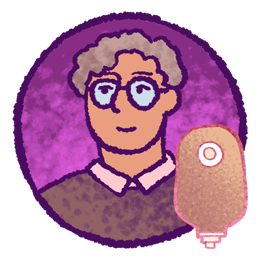
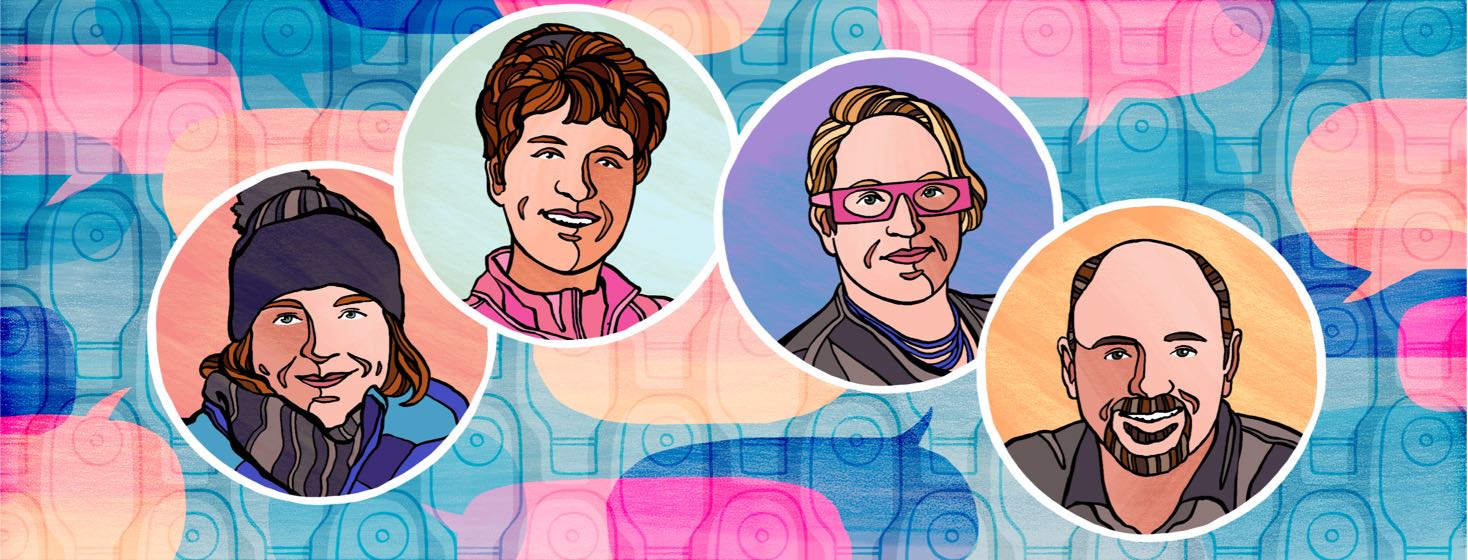
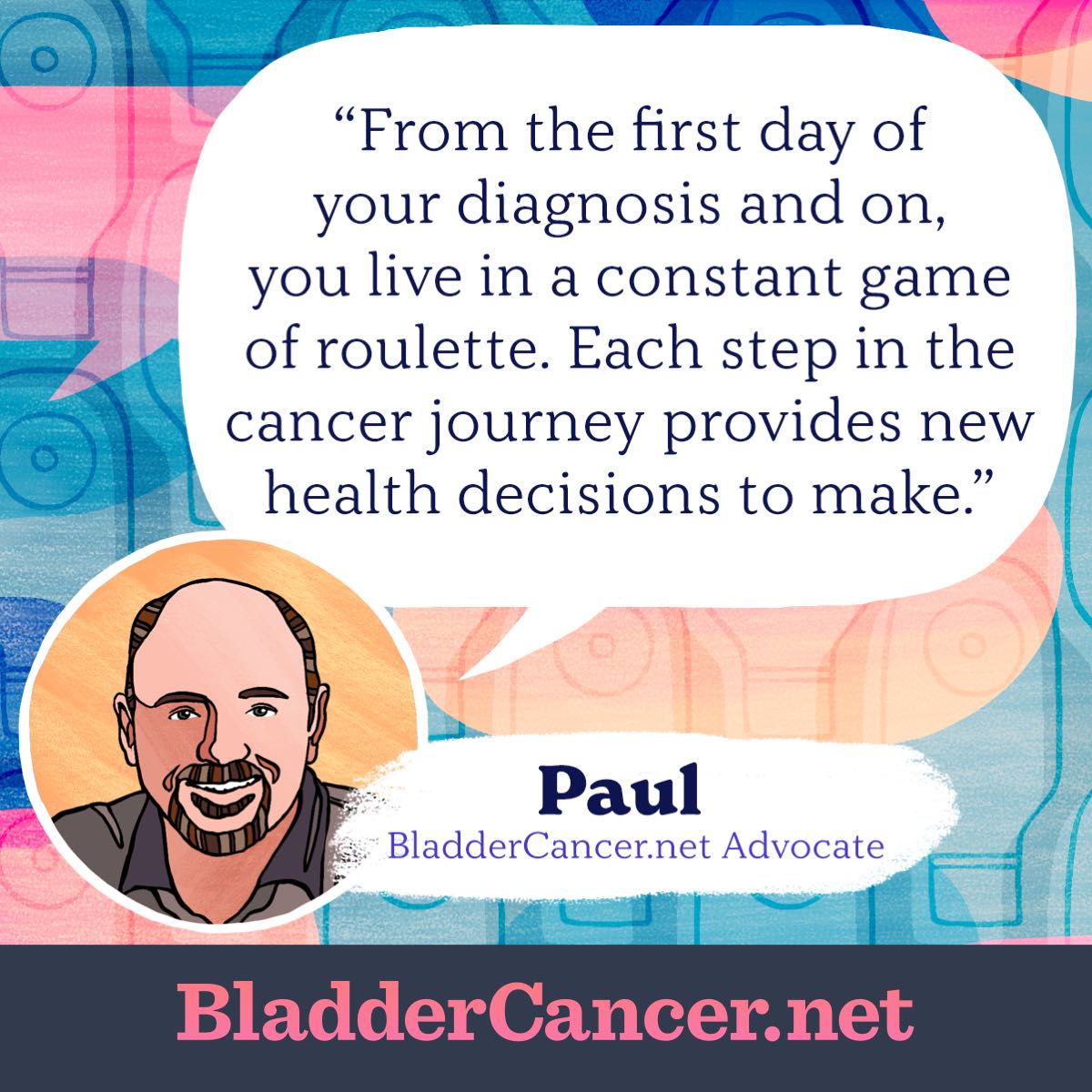
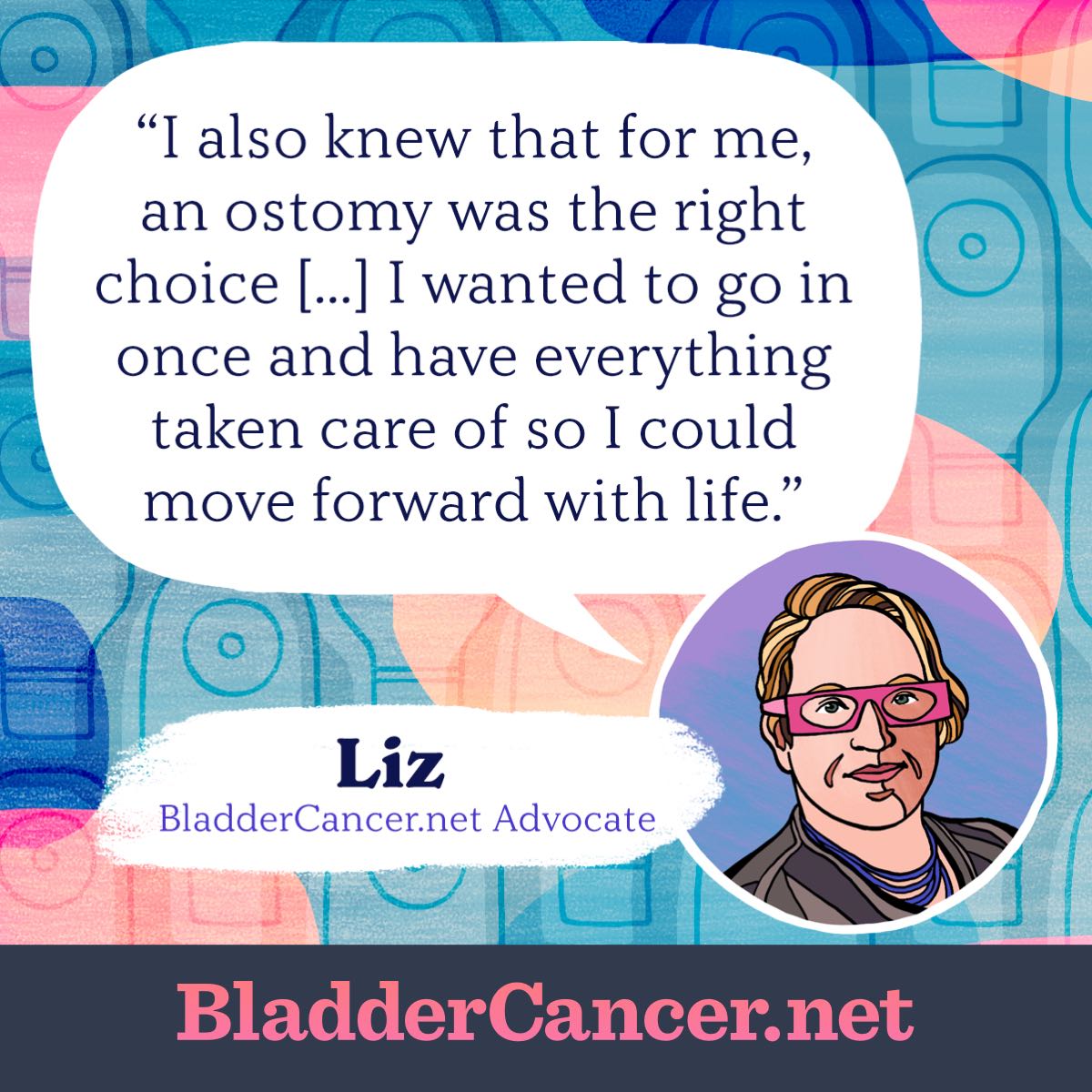
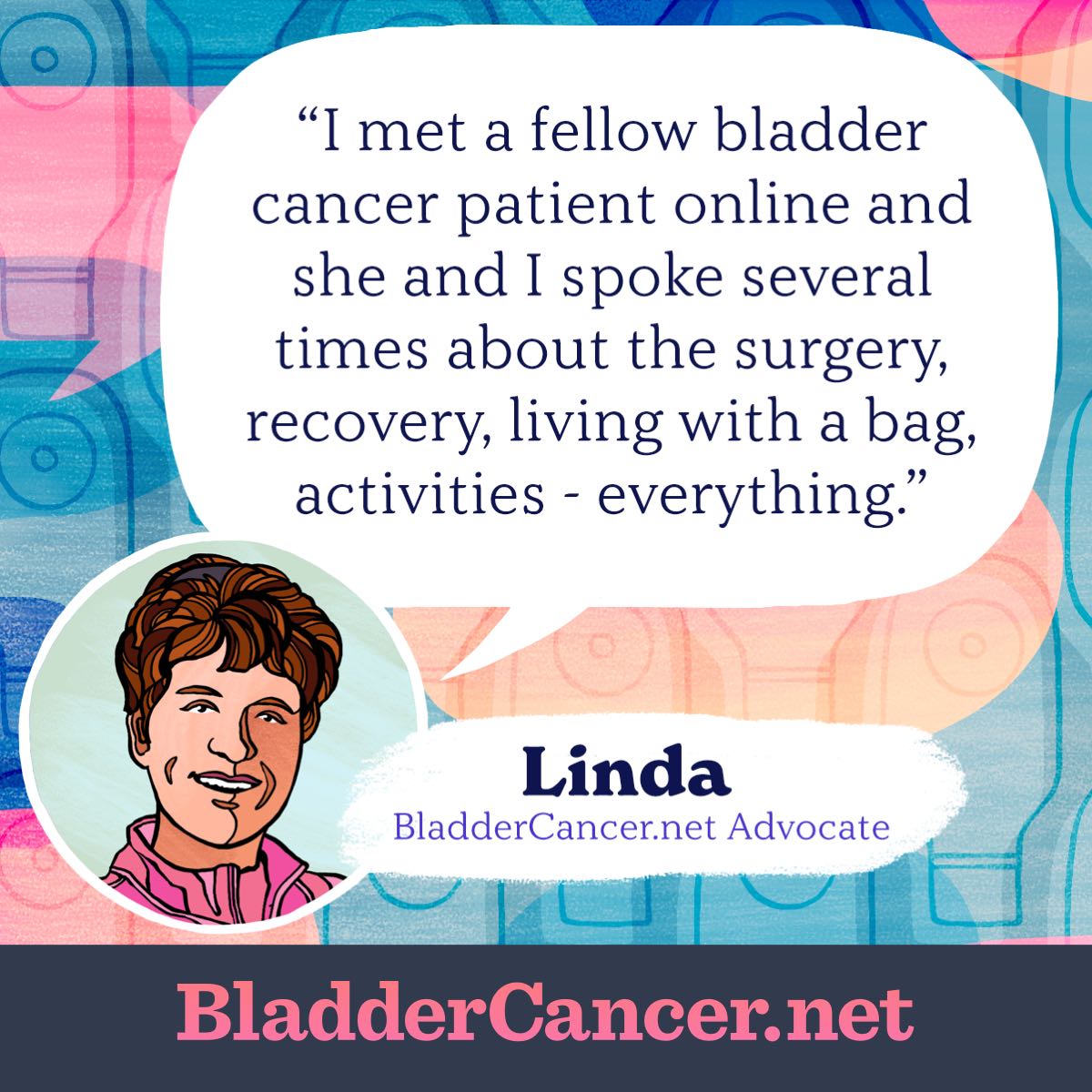
![My family and, in particular, my husband were key. Equally key were 2 of my consultants [doctors] who explained the operation in great detail 3 times. -Laura, BladderCancer.net Advocate](/wp-content/uploads/2022/01/B-9282-IAI-01@2x.jpg)
Join the conversation